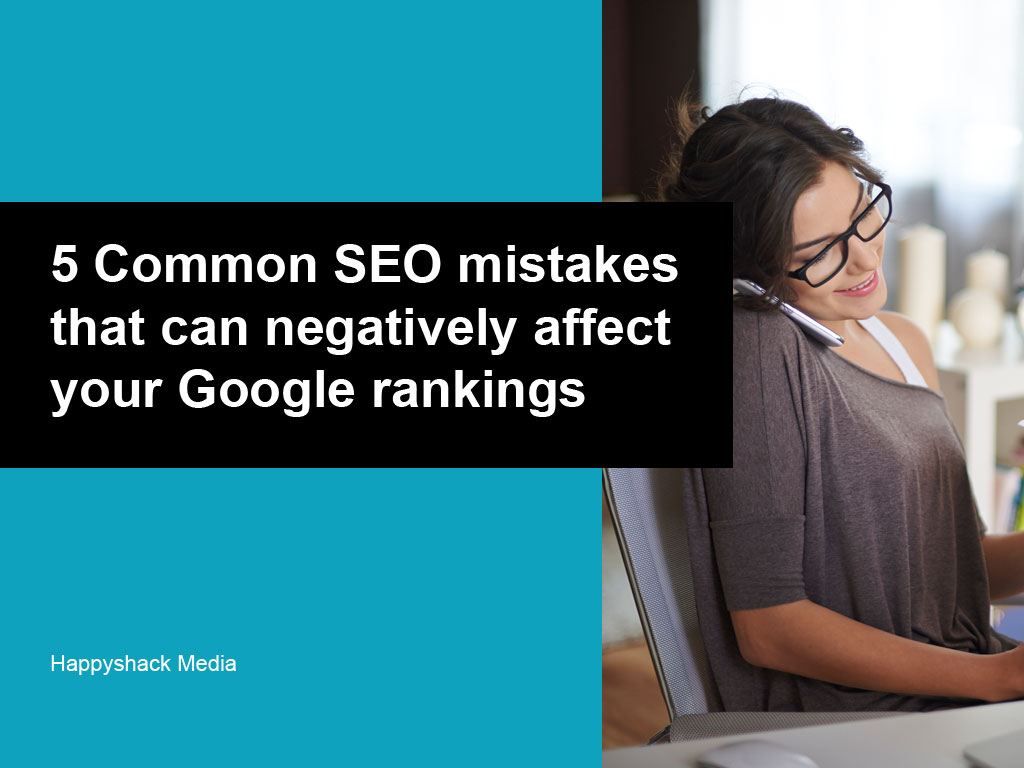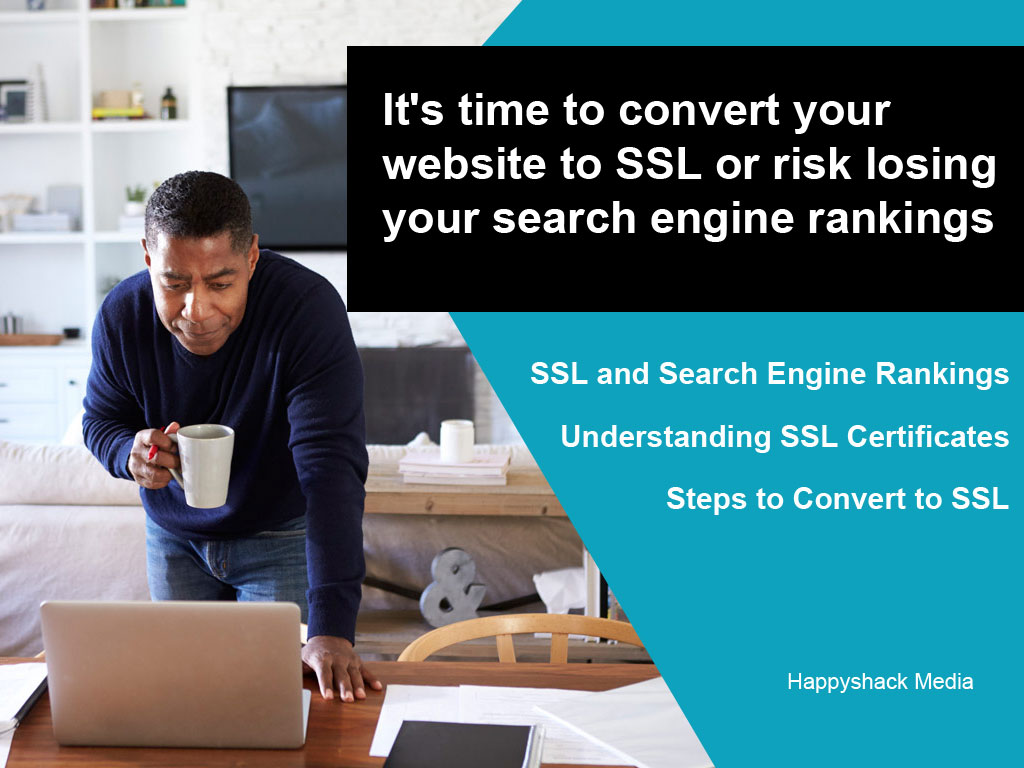
It's time to convert your website to SSL or risk losing your search engine rankings
What is SSL and how does it affect my small business website?
One of the primary functions of SSL (Secure Sockets Layer) certificates is to enable encryption of data transmitted between a website and its users.
With SSL encryption, the information exchanged, such as login credentials, personal details, or financial transactions, is transformed into an unreadable format that can only be deciphered by the intended recipient. This encryption ensures that sensitive data remains confidential and cannot be intercepted or tampered with by malicious actors.
SSL certificates play a crucial role in building trust and confidence among website visitors. When a website has an SSL certificate, it is accompanied by a padlock icon and an "https" prefix in the URL (see image below), indicating a secure connection.
The lock icon indicating a secure page
These visual cues reassure users that their information is protected and that they can trust the website with their sensitive data. In contrast, a lack of SSL certificate or an insecure connection may deter users from engaging with a website, potentially leading to a loss of credibility and customer trust.
Table of Contents
1. Understanding SSL Certificates
- What is an SSL Certificate?
- How SSL Certificates Work
- The Importance of SSL Certificates in Website Security
2. SSL and Search Engine Rankings
- What is the Impact of SSL on Search Engine Rankings
- Google's Emphasis on HTTPS
- SSL as a Ranking Signal
- Increased Trust and User Confidence
- Choosing the Right SSL Certificate
- Preparing Your Website for SSL Conversion
- Obtaining and Installing an SSL Certificate
- Updating Internal Links and Resources
- Redirecting HTTP to HTTPS
4. FAQs about Converting to SSL
- What is the cost of an SSL certificate?
- Will converting to SSL affect my website's performance?
- Can I convert to SSL on my own, or do I need professional help?
- Will converting to SSL impact existing search engine rankings?
- Is it necessary to convert all pages of my website to SSL?
1. Understanding SSL Certificates
What is an SSL Certificate?An SSL (Secure Sockets Layer) certificate is a digital certificate that authenticates the identity of a website and enables secure, encrypted communication between a user's browser and the website's server. It ensures that the data transmitted between the user and the website remains confidential, protected from interception or tampering by unauthorized parties.
How SSL Certificates WorkSSL certificates work by establishing an encrypted and secure connection between a user's browser and a website's server. When a user visits a website with an SSL certificate, their browser initiates a secure handshake process with the server, where they exchange encryption keys and verify the authenticity of the certificate.
This process enables data transmitted between the user and the website to be encrypted, ensuring confidentiality and protecting against unauthorized access or interception.
The Importance of SSL Certificates in Website SecuritySSL certificates play a crucial role in ensuring website security. Here's why SSL certificates are essential:
- Data Protection SSL certificates provide encryption, transforming sensitive information into an unreadable format during transmission. This encryption prevents unauthorized individuals from intercepting and deciphering the data.
- User Trust SSL certificates establish trust and credibility with website visitors. The visual cues, such as the padlock icon and "https" in the URL, indicate a secure connection and reassure users that their data is protected.
- SEO Benefits Search engines like Google prioritize websites with SSL certificates, considering them a ranking signal. Having an SSL certificate can positively impact search engine rankings, leading to improved visibility and organic traffic.
SSL certificates have a direct impact on search engine rankings. They serve as a ranking signal, indicating to search engines that the website prioritizes user security. SSL also contributes to an enhanced user experience, promoting trust and confidence among visitors.
With mobile-first indexing, SSL certificates are even more crucial for mobile search rankings, as mobile users seek secure connections. The use of SSL certificates on small business websites can positively influence search engine rankings and improve the overall visibility and organic traffic of a website.
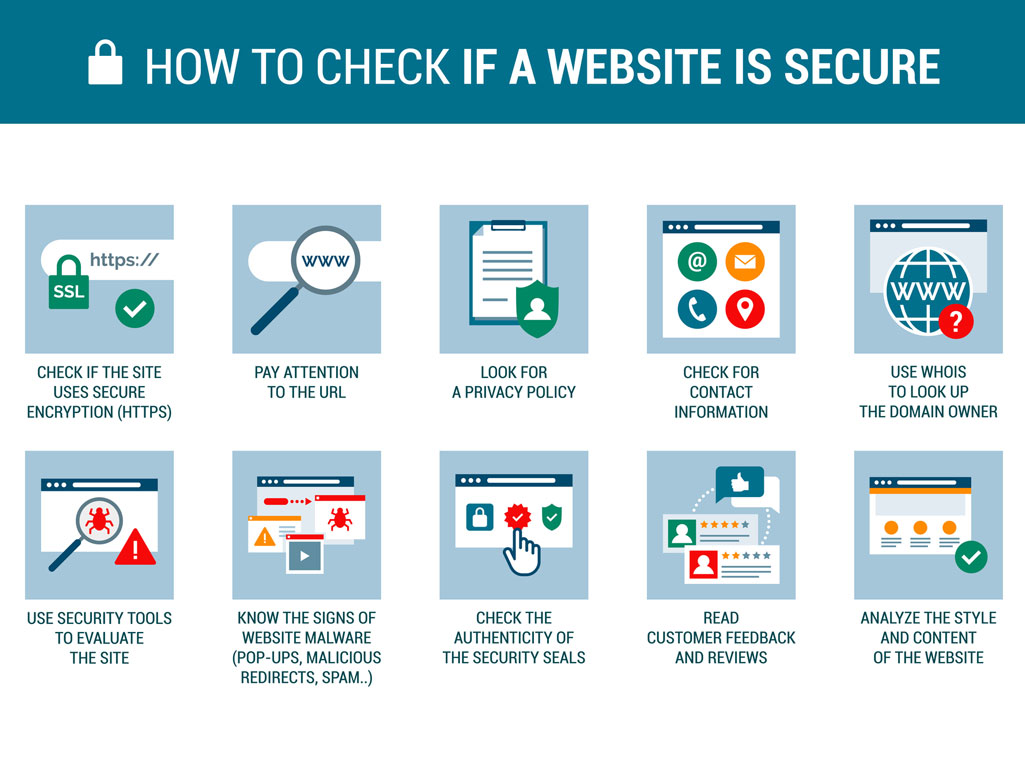
2. SSL and Search Engine Rankings
What is the Impact of SSL on Search Engine RankingsThe presence of SSL (Secure Sockets Layer) certificates on websites can have a significant impact on search engine rankings. Here are the three most important points regarding the impact of SSL on search engine rankings:
- Ranking Signal Google, the leading search engine, has explicitly stated that SSL is a ranking signal. Websites with SSL certificates are more likely to rank higher in search engine results compared to those without SSL or insecure connections. Google's emphasis on SSL demonstrates its commitment to prioritizing user security and encouraging website owners to adopt secure connections.
- Enhanced User Experience SSL certificates contribute to an improved user experience, which is a crucial factor considered by search engines when ranking websites. When users see the "https" and padlock icon indicating a secure connection, they are more likely to trust the website and feel confident in sharing their information. Websites that prioritize user security are seen as more reliable and are rewarded with better search engine rankings.
- Mobile-First Indexing With the growing number of mobile users, Google has implemented mobile-first indexing, which means that the mobile version of a website is considered the primary version for indexing and ranking. SSL certificates are particularly important for mobile devices, as users expect a secure browsing experience on their smartphones and tablets.
Websites without SSL certificates may be at a disadvantage in mobile search rankings, as they may be perceived as less secure and reliable for mobile users.
Google has placed a significant emphasis on websites using HTTPS (Hypertext Transfer Protocol Secure) for secure connections. HTTPS is the secure version of HTTP, incorporating SSL/TLS encryption to protect data transmission.
Google considers HTTPS as a ranking signal, meaning websites with HTTPS are more likely to rank higher in search results. This emphasis on HTTPS highlights Google's commitment to user security and incentivizes website owners to adopt secure connections to enhance their visibility and trustworthiness in search engine rankings.
SSL as a Ranking SignalSSL (Secure Sockets Layer) serves as a ranking signal in search engine algorithms, including Google's. Websites that have SSL certificates and secure HTTPS connections are more likely to receive a boost in search engine rankings compared to websites without SSL, as search engines prioritize user security and encourage the adoption of secure connections.
Increased Trust and User ConfidenceSSL certificates play a crucial role in increasing trust and user confidence on websites. When users see the padlock icon and "https" in the URL, they are reassured that their data is protected, leading to a higher level of trust in the website.
SSL certificates provide a visible indication of a secure connection, instilling confidence in users to engage with the website, share personal information, and complete transactions without the fear of data breaches or unauthorized access.
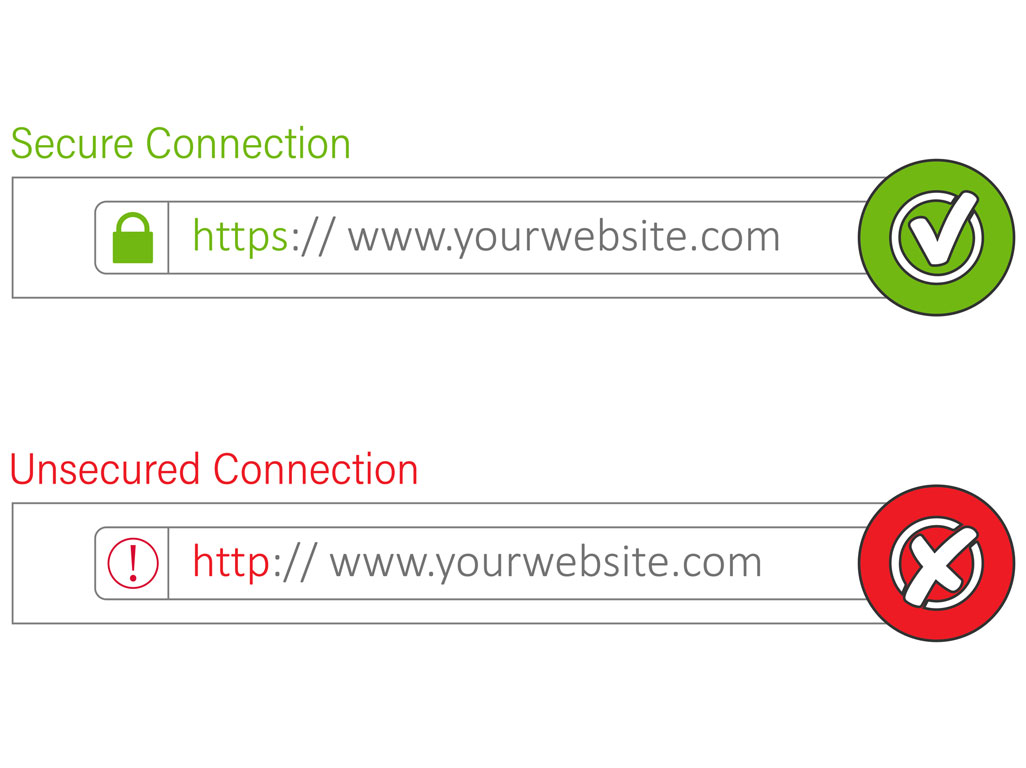
3. Steps to Convert to SSL
Choosing the Right SSL CertificateChoosing the right SSL (Secure Sockets Layer) certificate is an important decision for securing your website and establishing trust with your users. Here are some factors to consider when selecting an SSL certificate:
Certificate Type- Domain Validation (DV) Certificates These certificates only verify the domain ownership and are usually the most basic and affordable option. They are suitable for personal websites or blogs.
- Organization Validation (OV) Certificates OV certificates provide a higher level of validation by verifying the domain ownership as well as the organization's details. These certificates are ideal for small businesses and e-commerce websites.
- Multi-Domain Certificates Multi-domain certificates (also known as Subject Alternative Name or SAN certificates) allow you to secure multiple domains or subdomains with a single certificate. They are useful if you have several websites or subdomains to secure.
Price: Compare the prices of SSL certificates from different providers. While cost shouldn't be the sole deciding factor, it's important to find a balance between the features, validation level, and affordability of the certificate.
Preparing Your Website for SSL Conversion
Preparing your website for SSL conversion is crucial to ensure a smooth transition and avoid any potential issues. Here are some important points to consider when preparing your website for SSL conversion:
Updating Internal Links and ResourcesWhen you switch to SSL, it's essential to update all internal links and resources on your website to use the HTTPS protocol instead of HTTP. This includes updating links in your HTML, CSS, JavaScript files, and any other resources referenced on your website, such as images, videos, or scripts.
Failing to update these links can result in mixed content warnings or broken functionality on your website.
To accomplish this, you can use tools like search and replace plugins or scripts that can automatically update the links in your website's code. Additionally, make sure to update any HTTP links within your content management system (CMS) or website templates.
Redirecting HTTP to HTTPSTo ensure a seamless transition to SSL, you should set up proper HTTP to HTTPS redirection. This means configuring your web server or content delivery network (CDN) to automatically redirect all incoming HTTP requests to their corresponding HTTPS versions.
This step is crucial to prevent users from accessing insecure content and to maintain the integrity of your SSL certificate.
HTTP to HTTPS redirection can be implemented using server configuration rules, such as Apache's .htaccess file or Nginx's server block directives. You can typically find documentation or tutorials provided by your hosting provider or web server software to assist you in setting up the redirection correctly. Additionally, after implementing the redirect, it's recommended to test it thoroughly to ensure it's working as expected.
Check your SSL InstallAfter you have installed your security certificate you can perform a thorough scan and make sure that everything is working properly. Go to Qualys SSL Server Test located here for the free scan - Qualys SSL Server Test
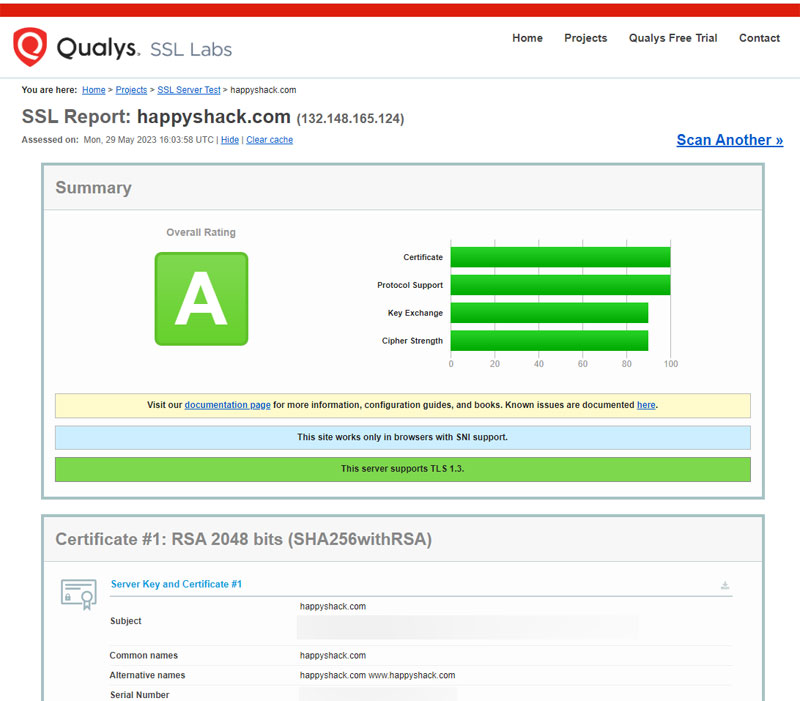
4. FAQs about Converting to SSL
What is the cost of an SSL certificate?The cost of an SSL (Secure Sockets Layer) certificate can vary depending on several factors, such as the type of certificate, the level of validation, the certificate authority (CA) issuing the certificate, and the additional features or services provided. Below are some common types of SSL certificates and their typical cost ranges.
- Domain Validation (DV) Certificates These certificates verify domain ownership and are the most basic type of SSL certificate. They are usually the least expensive and can range from around $10 to $100 per year.
- Organization Validation (OV) Certificates OV certificates require a higher level of validation, including verification of the organization's identity. The cost of OV certificates typically ranges from $50 to $300 per year.
- Multi-Domain Certificates Multi-domain certificates (also known as Subject Alternative Name or SAN certificates) allow you to secure multiple domains or subdomains with a single certificate. The cost of multi-domain certificates varies depending on the number of domains or subdomains included and can range from $100 to $500 per year.
Converting your website to SSL (Secure Sockets Layer) or its successor, TLS (Transport Layer Security), generally has a negligible impact on performance. In fact, the benefits of SSL/TLS often outweigh any minimal performance considerations.
SSL/TLS primarily adds a layer of encryption to secure the data transmitted between a website and its visitors. The encryption process introduces a slight overhead in terms of computational resources required to encrypt and decrypt the data. However, modern web servers and browsers are optimized to handle SSL/TLS efficiently, minimizing the impact on performance.
Can I convert to SSL on my own, or do I need professional help?Converting a website to use SSL (Secure Sockets Layer) or its successor, TLS, typically involves obtaining an SSL/TLS certificate and configuring your web server to enable HTTPS (HTTP over SSL/TLS). While it is possible to perform this conversion on your own, the level of technical expertise required depends on your familiarity with web server configuration and certificate management.
Will converting to SSL impact existing search engine rankings?Converting a website from HTTP to HTTPS (SSL) can potentially have an impact on search engine rankings, but it is generally a positive one.
Is it necessary to convert all pages of my website to SSL?Yes, it is highly recommended to convert all pages of your website to SSL. SSL/TLS is a security protocol that encrypts the communication between a user's browser and your website's server, ensuring that the data exchanged between them remains secure and cannot be intercepted or tampered with by unauthorized parties.
It's worth noting that SSL/TLS implementation involves obtaining an SSL/TLS certificate from a trusted Certificate Authority (CA) and configuring your web server accordingly. Additionally, you may need to update any internal links or resources within your website to ensure they use the secure HTTPS protocol.
Overall, converting all pages of your website to SSL/TLS is a best practice for security, user trust, search engine optimization, and compliance purposes.
5. Summary
SSL certificates have a direct impact on search engine rankings. They serve as a ranking signal, indicating to search engines that the website prioritizes user security. SSL also contributes to an enhanced user experience, fostering trust and confidence among visitors.
With mobile-first indexing, SSL certificates are even more crucial for mobile search rankings, as mobile users seek secure connections. Implementing SSL certificates can positively influence search engine rankings and improve the overall visibility and organic traffic of a website.



